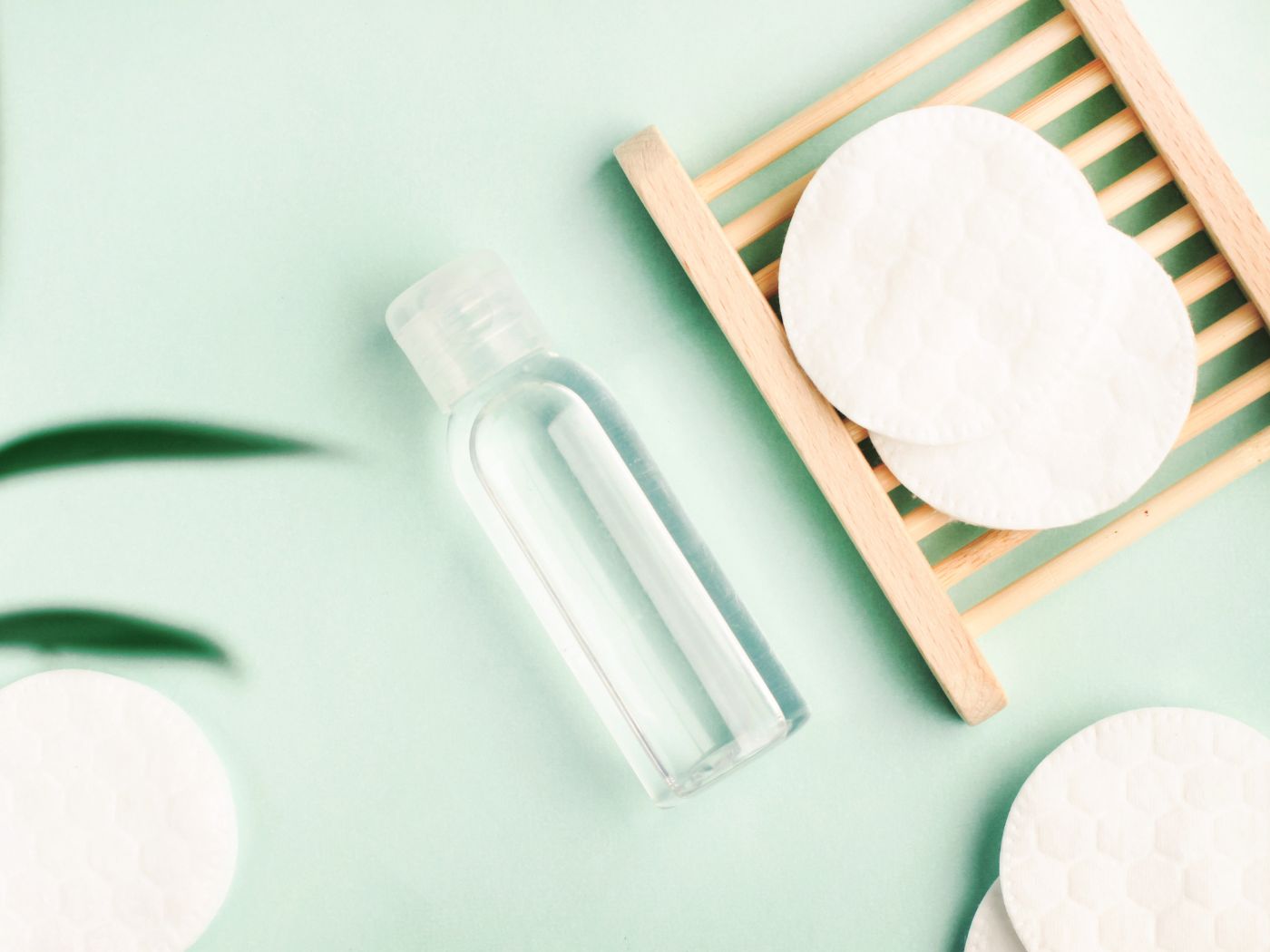Glycerin is one of the most versatile compounds that has several advantages. It is also widely used in the skin care industry because of its humectant nature that helps in keeping our skin hydrated and fresh. However, you can also use glycerin for oily skin. Today, we will take a look at the different ways you can use the benefits of glycerin and how to use glycerin for oily skin! So let’s begin, shall we?
-
What is Glycerin?
-
6 Benefits Of Glycerine For Oily Skin
-
Tips On How To Use Glycerine For Oily Skin
-
Conclusion
-
FAQs On Glycerin For Oily Skin
What is Glycerin?

Glycerin (also spelt glycerine or glycerol) is a sweet, viscous, and colourless liquid that is widely used in various industries, including food, pharmaceuticals, cosmetics, and personal care products. Chemically, glycerin is a trial, which means it contains three hydroxyl groups (-OH) and is classified as a sugar alcohol.
Glycerin has a wide range of uses due to its unique properties. It is hygroscopic, which means it can attract and absorb water molecules from the surrounding environment, making it a common ingredient in moisturisers, soaps, and other personal care products. It is also a good solvent and can be used to dissolve other substances, such as flavourings or active ingredients in medications. Glycerin is also commonly used as a humectant in food and beverage products to help retain moisture and improve texture.
Overall, glycerin is a versatile and useful compound with many practical applications.
6 Benefits Of Glycerine For Oily Skin

Glycerin can be a beneficial ingredient for oily skin as it has several properties that can help regulate oil production and maintain the skin's moisture balance. Here are some of the benefits of glycerin for oily skin:
- Hydrates the skin: Oily skin is often dehydrated, which can lead to the overproduction of sebum. Glycerin can help to hydrate the skin without making it greasy, which can prevent excess oil production.
- Balances oil production: When the skin is dehydrated, it can trigger the overproduction of sebum, leading to even more oily skin. Glycerin helps to maintain the skin's natural moisture balance, which can prevent excess oil production.
- Improves skin texture: Regular use of glycerin can help to improve the texture of oily skin by making it smoother and more supple. This is because glycerin helps to lock in moisture, which can plump up the skin and reduce the appearance of fine lines and wrinkles.
- Non-comedogenic: Glycerin is a non-comedogenic ingredient, which means it does not clog pores. This makes it a suitable ingredient for oily skin, as clogged pores can lead to breakouts and acne.
- Soothes skin: Glycerin has a cooling and soothing effect on the skin, which can help to reduce inflammation, irritation, and redness. This is particularly beneficial for oily skin types, as they are more prone to these skin problems.
- Protects the skin: Glycerin forms a protective barrier on the skin, which can help to prevent environmental damage and maintain healthy skin. This barrier also helps to lock in moisture, which can keep the skin looking youthful and radiant.
When using glycerin for oily skin, it is important to choose products that are well-formulated and contain the appropriate amount of glycerin. Using too much glycerin can cause the skin to feel sticky or tacky, which can be uncomfortable. It is also important to remember that glycerin is just one ingredient in a skincare routine, and it should be used in conjunction with other beneficial ingredients to achieve the best results.
Tips On How To Use Glycerine For Oily Skin

Here are some tips on how to use glycerin for oily skin:
- Use a small amount: As a humectant, glycerin can attract and retain moisture in the skin. However, using too much glycerin can lead to a sticky or tacky feeling on the skin. To avoid this, use only a small amount of glycerin in your skincare routine, especially if you have oily skin.
- Use it with other ingredients: Glycerin works best when combined with other beneficial ingredients for oily skin, such as salicylic acid or niacinamide. Look for skincare products that contain a combination of these ingredients for the best results.
- Apply it to damp skin: Glycerin works best when applied to damp skin. After cleansing your face, pat your skin dry and then apply a small amount of glycerin to your face and neck. The dampness helps the glycerin to penetrate the skin and retain moisture.
- Use it as a moisturiser: Glycerin can be used as a standalone moisturiser for oily skin. Simply mix a small amount of glycerin with water and apply it to your face and neck. This will help to hydrate your skin without making it feel greasy.
- Use it as a face mist: You can also use glycerin as a face mist. Mix glycerin with water in a spray bottle and mist your face throughout the day to keep your skin hydrated and refreshed. This is especially helpful if you spend a lot of time in air-conditioned environments or if you live in a dry climate.
- Avoid using pure glycerin: Pure glycerin can be too strong for oily skin and can irritate. Instead, look for skincare products that contain glycerin as one of the ingredients. This way, you can benefit from glycerin's moisturising properties without the risk of irritation.
Overall, glycerin can be a beneficial ingredient for oily skin. However, it is important to use it correctly and in moderation to avoid any adverse effects. If you are looking for natural ways to manage oily skin, you should also take a look at Energise Grapefruit Revitalising Face Cleaning Gel by Pure Sense. The cleansing gel is designed to naturally cleanse your skin pores, provide you with nourishment and protect your skin.
Conclusion
These are some of the benefits of glycerin for oily skin and the answer to how to use glycerin for oily skin! We hope this answers all your questions!
FAQs On Glycerin For Oily Skin
-
Can I use glycerin in the summer?
Yes, you can use glycerin in the summer! Glycerin is a versatile ingredient that can be used year-round, regardless of the season. In fact, glycerin can be especially beneficial during the summer months when the air is hot and dry, and your skin may be more prone to dehydration. However, when using glycerin in the summer, it's important to use it in moderation and to adjust your skincare routine as needed.
-
Is glycerine good for oily skin?
Yes, glycerin is good for oily skin because it can help to hydrate the skin without making it feel greasy or heavy, has a low molecular weight which makes it non-comedogenic and suitable for acne-prone skin, has anti-inflammatory properties which can soothe irritated skin, and can help to balance the skin's natural moisture levels which may help to reduce the appearance of oily skin. However, it's important to use glycerin in moderation and find a product that works well for your skin type.
-
How to use glycerin for oily skin?
To use glycerin for oily skin, it's recommended to dilute it with water or use a product that contains a lower concentration of glycerin. You can also mix it with a lightweight moisturiser or use it as a facial mist. It's important to use glycerin in moderation and patch tests before use and to consult with a dermatologist if you have any concerns.







